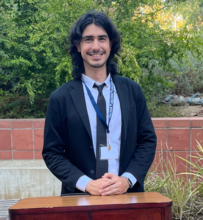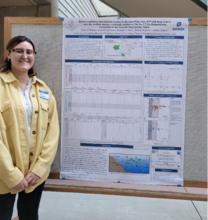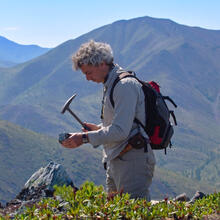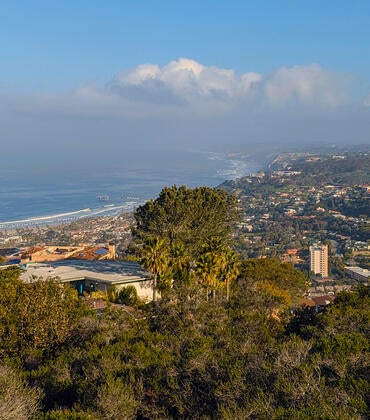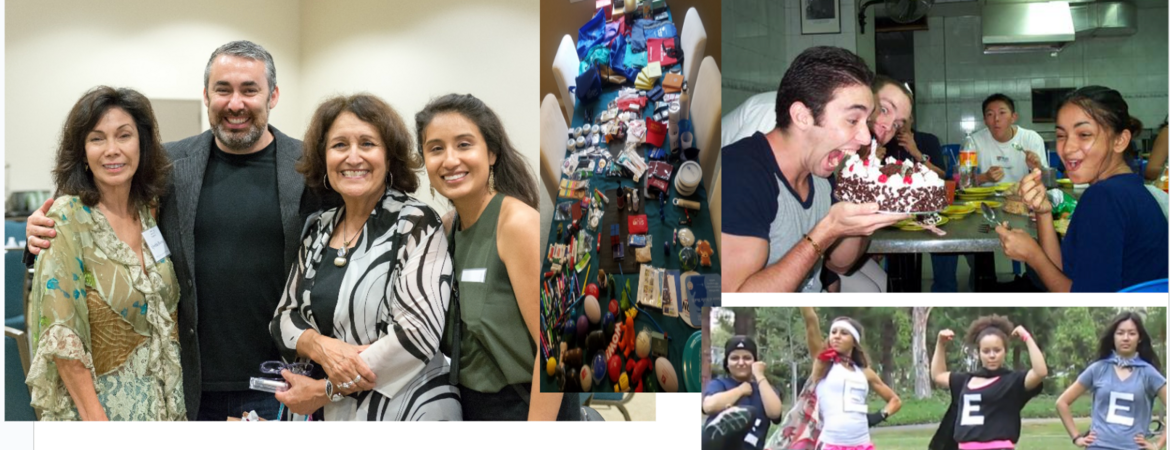
What happens when you mix an undergrad, grad, and faculty mentor into one research program? You get UCR CAMP Scholars.
UC Riverside’s California Alliance for Minority Participation, or CAMP, is funded by the National Science Foundation, or NSF, and serves underrepresented students majoring in science, technology, engineering, and mathematics, or STEM.
The program’s goal is to increase the quality and quantity of minority students successfully completing undergraduate science degrees and pursuing further studies at the graduate and professional levels. The end game is more minority scholars with doctorates to change the face of academia.
“The CAMP program at UCR is changing the face of academia so that faculty and graduate students can better represent the diverse UCR student population,” said Dr. Brandon Brown, UCR CAMP director, program alum, and professor of medicine. “Our goal for this year is to fund more CAMP Scholars, increase our professional development activities, and work hard to prepare CAMP students for the next step in their scientific careers.”
Since the $4 million NSF grant was awarded to UCR in 2018, 18 students have entered Ph.D. programs, eight into master’s degree programs, and four in M.D. programs, all within STEM disciplines.
Participants get research opportunities, financial support, career counseling, presentation skills development, laboratory training, graduate school admission preparation, travel opportunities to professional conferences/symposia, and so much more.
But it’s the connection between faculty mentors, graduate instructors, and undergraduate learners/doers, aka the CAMP Scholar, that is the most compelling program byproduct.
Meet a CAMP-UCR team of representatives from each of the three roles and discover their perspectives and experiences as they research early Earth evolution. All three are members of the College of Natural and Agricultural Sciences.
Alberto Reyes, CAMP participant since fall 2022, pursuing a bachelor’s degree in geophysics, and expected to graduate in spring 2024.
Ginny Winters, CAMP participant since 2020, pursuing a Ph.D. in geoscience/organic geochemistry, and expected to graduate in 2027.
Andrey Bekker, CAMP participant since 2020, associate professor, department of earth and planetary sciences.
Q: How did you start your involvement with CAMP?
- Undergrad: “I was recommended by Dr. Bekker as a way for me to continue to involve myself in the lab after my first summer program ended.”
- Grad: “I was referred by a CNAS STEM Peer Mentor staff member.”
- Faculty: “Ginny [the grad instructor] introduced me to this program.”
Q: What research goals link the three of you together?
- Undergrad: “Geo-chemical analysis of isotopic relationships of Neo-Proterozoic carbonates.”
- Grad: Identifying parameters that help answer when a specific event has occurred in the geological record. By examining different locations and time periods we can better understand the impact and evolution our planet is having as it ages and becomes capable of supporting complex life.
- Faculty: “Changes in the chemistry of the atmosphere and ocean, the evolution of life, and the emergence of continents.”
Q: How do you interact with the other two teammates?
- Undergrad: “We operate with a touch-and-go style of work that best suits us all. Since Dr. Bekker and Ginny often have fieldwork, they tell me what tasks need to be completed in the lab and I work through them to the best of my ability. I find much of my focus and direction about what the actual research is from Dr. Bekker and most of my lab procedure knowledge comes from Ginny.”
- Grad: “I have biweekly meetings with Andrey to discuss my research project and the direction of the current CAMP Scholars project, like what are the expectations and goals for the students and how I can help them meet deadlines. I train Alberto in our laboratory methods and work with him to analyze and understand data being collected from the rock samples that he processes.”
- Faculty: “We meet regularly in the lab and in my office for discussion of work and research results.”
Q: How has CAMP prepared you for grad school (Alberto), or for life after grad school (Ginny)?
- Undergrad: “The work-study balance that I have learned to upkeep during the school year has definitely prepared me for what graduate school could offer when I join one. Many of the lab skills and computational skills also would translate incredibly well to an environment in which that is a large portion of what you do.”
- Grad: “It’s prepared me to be a critical thinker when conducting my research. By examining the reason behind specific methodology, instrument set-up, and data analysis, I look at my work with a magnifying glass, concentrating on the details. By starting to train myself in a more detail-orientated fashion I am able to better isolate careers that would suit me after grad school. Additionally, by doing this I am better able to isolate my strengths, which allows me to consider what I can contribute to a career, program, or lab after my completed studies.”
Q: How does CAMP assist its students?
- Undergrad: “CAMP actually looks out for underrepresented students, especially in the graduate school divisions. Many first-generation college students have a hard time making the connections that would make a grad school program feasible, but CAMP helps bridge those connections and makes it easier to put underrepresented students on par with the rest.”
- Grad: “Underrepresented students are at a disadvantage when it comes to determining what skills and experience are needed for graduate school. CAMP offers these students the ability to learn the general expectations for a student applying, like research experience, scientific communication, and time management. And then goes one step further to offer opportunities for students to practice and meet these expectations, like conducting research in a lab over the summer, creating a written piece abstract/final paper, and presenting at an end-of-the-summer symposium.
- Faculty: “It encourages underrepresented students to apply, and they have a higher chance to be accepted to the program. In turn, it opens doors for them to labs, introduces them to faculty members and graduate students on a personal level, and allows to build realistic expectations for graduate school.”
Q: In your opinion, what type of undergrad, grad, or faculty participants is CAMP a good fit for?
- Undergrad: “I think CAMP Scholars is a good opportunity for first-generation undergrad students like myself to find guidance and a path to a higher education and I think a way to get that is through this program. Fully immersing yourself in every step of research along with classes has been a very fulfilling experience for me and I would find it harder to do so without the CAMP Scholar program. I think anyone looking for a way to fully make sense of all the material that is learned in classes and put it into a more practical setting will find CAMP Scholars to be a very worthwhile experience.”
- Grad: “This program would be best suited for a graduate student looking to gain teaching experience, whether it be laboratory training or presentation/communication skills, and willing to be a mentor. As a graduate student, you are working closely with undergrads and they will come with questions both research and personal development related.”
- Faculty: “Faculty mentors should be patient and willing to explain things slowly and give students full support and be available.”
CAMP accepts participants year-round. The CAMP program is both for Level 1 students — CAMP Scholars doing faculty-mentored research; and Level 2 students — those who participate in CAMP and benefit from professional development activities but who are not funded to do the faculty-mentored research.
To learn more about the program and eligibility, or to apply for the upcoming quarter, contact brandon.brown@medsch.ucr.edu or visit the UCR CAMP office in Webber Hall 1237.
Related UCR CAMP articles:
